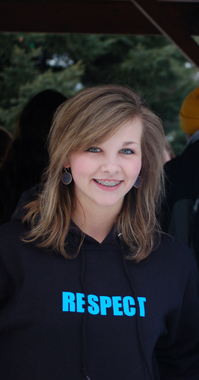By the age of 13, 53 percent of American girls are “unhappy with their bodies.” This grows to 78 percent by the time girls reach seventeen (Women’s Media Center).
Where does this come from? Is it instinctual, genetic? Do we wake up one morning and just decide to fear the muscle and baby fat that keeps us alive, and despise our once desired curves?
I recently had the pleasure of discovering the documentary “Miss Representation,” a disturbing look at what today’s media has become and what its messages really are. Jennifer Siebel, an actress, filmmaker, devoted wife, and soon-to-be mother, sets off to try to make a better world for her daughter.
Siebel herself suffered the pain and pressure that the media puts on girls. Being surrounded by images of air brushed, primped and impossibly perfect looking models and actresses, she felt the pressure to conform and starve herself. With the fear that her daughter and other young girls would go through the same agony, she interviewed and questioned young and old women in high positions of power as well as high school students about their views and feelings they held toward the media.
She hoped to find solutions to the everlasting problem of the distorted image that America holds toward women. She was successful; this film hit home.
As a 17-year-old girl, living in today’s society, reading Glamour and watching reality TV, I am surrounded by “sexy” women acting like complete idiots and dieting till they are skin and bones. Growing up in a society that supports the lie that woman are only beautiful when they weigh 100 pounds and dress in the way that men want them to, it’s hard to look at yourself in the mirror and be completely satisfied with what you see.
When is it going to be enough?
Sixty-nine percent of girls in fifth-12th grades reported that magazine pictures influenced their idea of a perfect body shape (National Association on Anorexia Nervosa and Associated Distorders).
Shouldn’t this be enough proof?
Siebel begs men and woman to stand up and put an end to harmful media exposure. I accept the challenge, and agree to abstain from my usual magazine choices and to stop watching reality TV shows that broadcast an unhealthy image of how American society thinks women should look.
I am hoping for a better future and asking all of you to take the respect challenge. As Jennifer Siebel says, “You can’t be what you can’t see.”
Zoe Story is a junior at Homer High School. She writes: “As a teenager with ambitions and strong beliefs, a passion of mine is women in the media. To be more specific, the way women are portrayed and looked down upon in movies, commercials, TV shows and magazines.” She also is a teen mentor in Promoting Health Among Teens, or P.H.A.T.
Enough is enough


